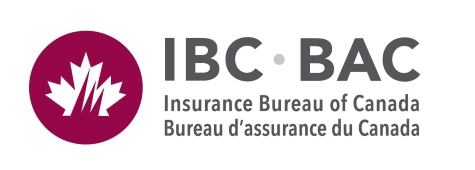Road and home safety tips for Daylight Saving Time
TORONTO, March 7, 2014 /CNW/ - As the winter season drags on, many Canadians are looking forward to an extra hour of daylight as we turn the clocks forward for Daylight Saving Time this Sunday, March 9, at 2 a.m. During this transition, Insurance Bureau of Canada (IBC) reminds you to be mindful of road and home safety as we "spring forward."
Losing an hour of sleep can be hard on the body. In addition to losing sleep, the changes you have to make to your schedule can cause fatigue. This can lead to fatigue impairment, which can be dangerous when driving. Like alcohol, fatigue impairment slows a driver's reaction time, decreases awareness, impairs judgment and increases the risk of crashing.
Be extra cautious when driving in the days after the return to Daylight Saving Time:
- Start your trip well rested, plan to take breaks every two hours and avoid driving between 1 a.m. and 7 a.m., when your body naturally craves sleep.
- If you feel tired, don't drive.
- If you notice any of the symptoms of fatigue - such as loss of concentration, drifting out of your lane or nodding off - pull off the road to a safe spot and have a rest.
- Find out if you're at risk of fatigue impairment. Remember: If you're driving tired, you're driving impaired.
It's also a good idea to get into the habit of doing a safety check around your home each time you adjust the clocks.
Make the following tasks part of your Daylight Saving Time routine:
- Replace batteries in smoke alarms and carbon monoxide detectors. Once the batteries are replaced, test these devices to ensure they work properly.
- Prepare or restock an emergency supply kit for your home.
- Prepare or restock an emergency supply kit for your vehicle.
- Check your home, yard and shed for hazardous materials and carefully discard any that are outdated, no longer used or in poor condition.
About Insurance Bureau of Canada
Insurance Bureau of Canada (IBC) is pleased to celebrate 50 years as a valuable resource for insurance information. Since 1964, IBC has been working with governments across Canada to make our communities safer, championing issues that directly affect Canadians and the property and casualty (P&C) insurance industry. IBC is the national industry association representing Canada's private home, car and business insurers. Its member companies represent 90% of the P&C insurance market in Canada. The P&C insurance industry employs over 118,600 Canadians, pays more than $7 billion in taxes and levies to the federal, provincial and municipal governments, and has a total premium base of $46 billion.
To view media releases and other information, visit the media section of IBC's website at www.ibc.ca. Follow IBC on Twitter @InsuranceBureau or like us on Facebook.
If you require more information, IBC spokespeople are available to discuss the details in this media release.
SOURCE: Insurance Bureau of Canada

To schedule an interview over the weekend, please contact:
Steve Kee
Director, Media Relations
416-362-2031 X-4387
[email protected]

Share this article